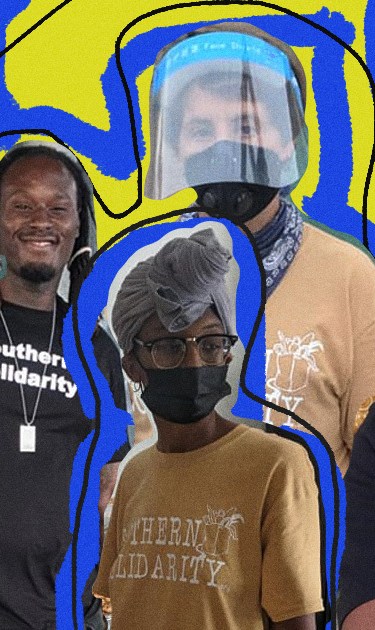Be About It is a column in which we look at issues affecting our communities and dig into the necessary work Latinos are heralding or participating in for a better “America.” We encourage you to not just read about it, but also be about it. To kick off, we’ll take a brief look at the history of mutual aid societies in our communities and how a couple of coronavirus-response initiatives are a reminder of that DNA.
Jasmine Araujo confesses she’s feeling tired. Minutes ago, she returned home from distributing bags filled with fresh fruit, greens, sandwiches and other foods to her unhoused neighbors in New Orleans. Now, Araujo—who’s one of many activists providing pandemic-related care work through mutual aid organizations—gets to sit and chow down.
For the last thirty days, Araujo’s been busy helming the COVID-19-related efforts of Southern Solidarity—a grassroots community-based group which she, a queer Black woman, founded. Southern Solidarity is self-defined as “a group of volunteers in solidarity with the unhoused in their quest toward liberation.”
It is one of the many mutual aid groups that are proliferating during this time.

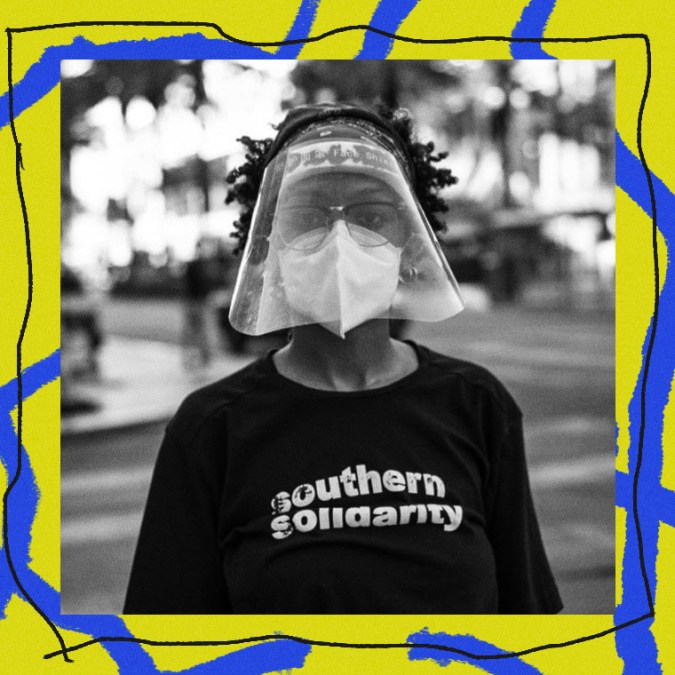
Recent data confirms what many of us who belong to minoritized communities suspected from the get-go—that once the pandemic struck the United States, it would worsen existing inequalities.
The New York Times reports that 75% of New York’s White voters have the privilege of not knowing anyone who has died of coronavirus. That is in stark contrast with the 48% and 52% of the city’s Black and Latino voters respectively.
My sister (a nurse) is one of these Latino voters. The Brooklyn hospital that employs her has two large trucks outside to refrigerate cadavers. So far, she has lost five co-workers to COVID-19.
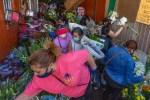
Rebecca Nagle, a citizen of the Cherokee Nation, reports that many states are failing to collect data that include Native Americans despite Indian Country’s high percentage of coronavirus infections and casualties. The disproportionate costs afflicting communities of color and other minoritized groups have spurred activists to mobilize people and resources to meet the needs of those whose neighbors and governments are neglecting and abandoning them.
Originally from New York’s lower east side, Araujo, who hails from a Dominican family, moved to New Orleans seven years ago. She became involved in education as a diversity, equity and inclusion director. That work gave her experience in guiding groups of staff in anti-racist work.
Latinos share in this history of alternative care-work, having formed sociedades mutualistas, collectives that emerged to support Brown folks’ struggling to survive as “outsiders in an Anglo-American society.”

U.S. history informs her organizing methods and goals.
Araujo and others continue a legacy and tradition of reciprocity and solidarity.
In 1969, the Panthers’ Free Breakfast for School Children Program was started at Saint Augustine’s Church in Oakland. They fed 20,000 children during its debut year, thus exceeding the number of kids that the State of California fed that same year.
If apple pie is as American as it gets, so is hoarding it. White supremacy does not like to share and the history of minoritized communities living on U.S. soil reflects that tendency. We have mobilized mutual aid since this country’s inception. Communities of color—which the US government purposely neglects to supply with the goods and services needed to survive and thrive—have always been forced to create social welfare alternatives.

In addition to food justice, the Panthers provided communities with clothes, shoes, legal services, childcare and housing. Party co-founder Huey Newton explained the tailored purpose of these programs in 1989, stressing that the Panthers created “institutions in the community that really served” wait for it… “the community.”
Latinos share in this history of alternative care-work, having formed sociedades mutualistas, collectives that emerged to support Brown folks’ struggling to survive as “outsiders in an Anglo-American society.” Like the Panthers, some of these mutualistas also engaged in direct political action.
El Comité de Vecinos de Lemon Grove, for example, effectively united barrio parents in California who weren’t into sending their kids to segregated “Mexican” schools which resembled barns. The Lemon Grove mutualistas sued for the right to attend “White” schools and, in 1931, the court ruled in the mutualistas’ favor, establishing a legal basis for future battles against school segregation.

Araujo and those doing similar work continue that legacy and tradition of reciprocity and solidarity.
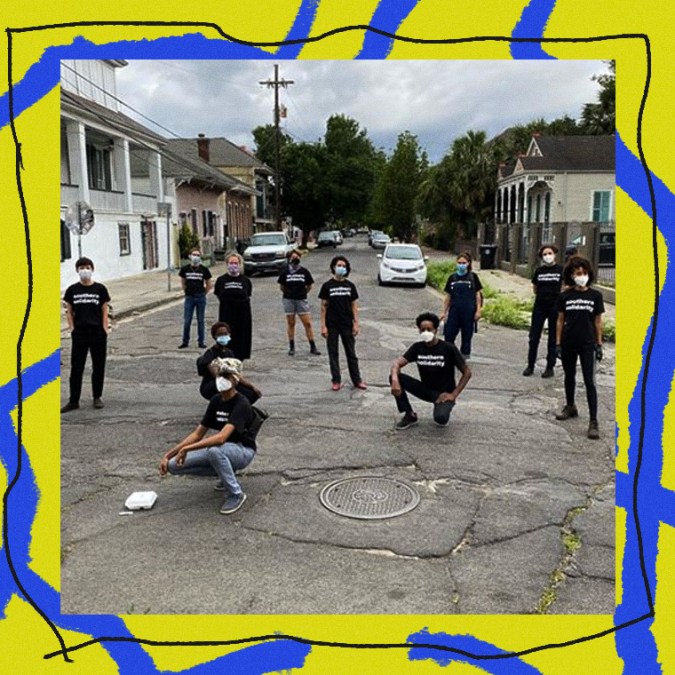
Like Newton, Araujo wants Southern Solidarity to truly serve its community. So, instead of making assumptions about what the community needs, she went for walks through the French Quarter to observe and assess. She quickly became concerned with the level of neglect her unhoused neighbors were experiencing. When the coronavirus crisis intensified, she knew an “already brutal existence was about to intensify for many.”
Araujo knew unhoused folks wouldn’t receive coronavirus updates. They wouldn’t be able to rely on loose change donated by pedestrians if the city shut down and they would become more vulnerable to mental health issues. She also knew disabled people and those who don’t speak English would have a difficult time accessing free food sites.
“I wanted to help people who couldn’t easily navigate around the city,” says Araujo. She made note of all of that and responded—because empathy without action is useless.
Araujo took to Facebook to fundraise $20,000 and invite volunteers to mobilize. Eventually, she secured food, a workspace, protective gear and vehicles to transport donations. Today, Araujo and thirty volunteers prepare and deliver dinner directly to the neighborhoods where their unhoused neighbors live.
Amaad Rivera—an Afro-Latino who originally hails from Massachusetts and now lives in Green Bay—has taken a different approach to mobilizing mutual aid with his midwestern neighbors. While Rivera has served as a city councilor and congressional policy advisor, he says that his earliest experiences with mutual aid were modeled by his mom who continues to inspire him. “My mom is out there delivering meals to families without transportation,” he says.
Empathy without action is useless.
Rivera grew up in homeless shelters and says, “It was there where I saw the resilience of women. I watched women take care of other women and they showed me that you don’t need to have permission to uplift people.”
Through Facebook, Rivera has recruited three hundred volunteers and successfully created Greater Green Bay Mutual Aid—a digital space for resource sharing. The site functions as an online information clearinghouse that connects those who need help with resource providers. They’ve established several meal programs and now Rivera is looking to nurture an intersectional approach to mutual aid.
“We’re having a coronavirus outbreak at meatpacking facilities and we’re gonna see our numbers quadruple,” Rivera says. “However, there isn’t much help for non-English speaking migrants and Latinos in Green Bay. I’m trying to get this community support services.”
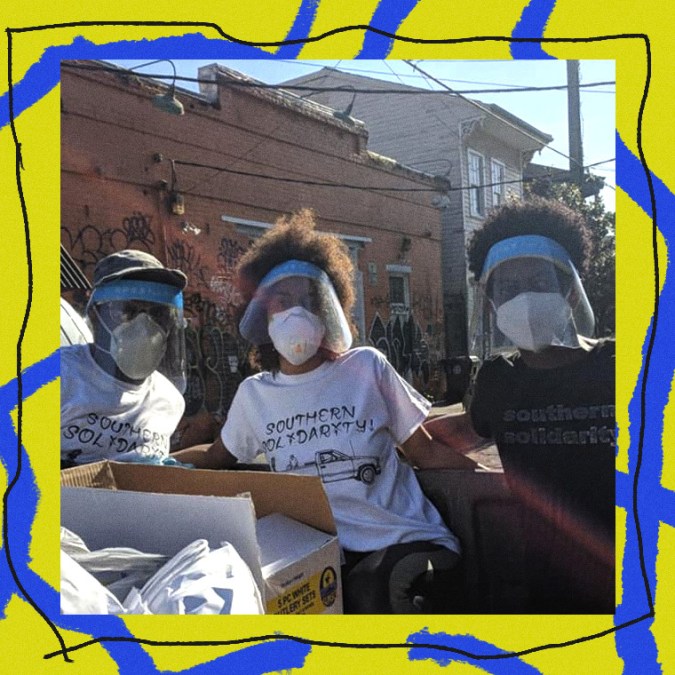
Southern Solidarity has gone from 24 daily meal distributions to 250.
“We’re doing this because capitalism is making survival impossible,” Araujo says.
She plans to meet with researchers and academics to develop a guidebook on how to create a mutual aid project during a pandemic but, in the meantime, she has advice for those of us interested in lending a hand: “Assess and observe,” she says. “Do not mimic colonizer actions. Connect to existing institutions. And, most of all, insert your radical imagination.”
